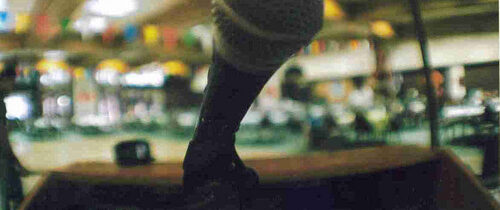Safety is not a Christian virtue
In 1934, Dietrich Bonhoeffer addressed the ecumenical peace organization World Alliance for International Friendship through Churches in Denmark.[1] Centrally in this address, Bonhoeffer argues that the World Alliance must function as the universal Church by working for peace with the aim of not only ending war but finding victory over it. Victory over war involves understanding war “as the work of evil powers in this world, enemies of God.”[2] As Christians, Bonhoeffer reminds his audience that the work of peace is a mandate for the ecumenical Church, not an optional problem that needs to be dealt with. The mission of peace among Christians transcends and unites across any and all societal boundaries, be they “national, political, social, or racial.”[3]
In this address, Bonhoeffer highlights the confusion of safety with peace: “There is no way to peace along the way of safety. For peace must be dared. It is the great venture. It can never be made safe. Peace is the opposite of security.”[4] To pursue safety is to diverge from the way of peace. Astutely, Bonhoeffer notes that concerns for security are centered on the self, inherently shifting the focus away from the peace that Christ brought, a peace brought not through security but through self-abandonment on the cross. To choose peace over safety means entrusting the outcome of the nations to God rather than manipulating the current situation for our own selfish ends.
Safety is not a Christian virtue.
To prioritize safety places oneself rather than God in the place of judging the appropriate outcome. To prioritize safety is to go in the way of the prideful self. Dorothy Sayers captures it well: pride is “the sin of the noble mind.”[5] The great danger of pride, in fact, is that it masquerades so well as the way of good intentions. The camouflaging power of pride to appear as a virtue is precisely what leads Sayers to argue that it is the deadliest of the seven deadly sins. With the same impulse Bonhoeffer describes in the concern for safety, pride makes its wielder her own master. The prideful person postures himself as a god. In the call for safety above all else, the caller becomes the master and judge of a good outcome; this cannot not end well.
[1] Dietrich Bonhoeffer, “Fanø Theses Paper and Address: The Church and the Peoples of the World” in The Bonhoeffer Reader, ed. Clifford J. Green and Michael DeJonge (Minneapolis, MN: Fortress Press, 2013), 393–97.
[2]Ibid., 394.
[3] Ibid., 396.
[4] Ibid.
[5] Dorothy Sayers, “The Other Six Deadly Sins” in Christian Letters to a Post-Christian World: A Selection of Essays (Grand Rapids, MI: Eerdmans, 1969), 154.
Rachel
Latest posts by Rachel (see all)
- On Fairy Stories - October 20, 2016
- Are Women Human? - August 15, 2016
- The Nicene Creed: “…who spoke by the prophets.” - July 11, 2016


